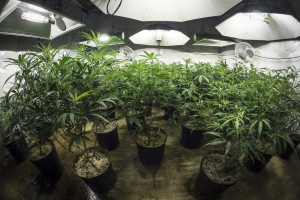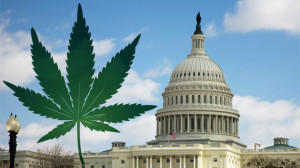 California has successfully circumvented federal law and created a state-held bank with the purpose of serving the marijuana industry. While many are excited that these plans have moved from words to actions, others are questioning how viable it is. This has led state Treasurer John Chiang and state Attorney General Xavier Becerra to launch a new feasibility study. Chiang’s department will be focusing on the financial and operational issues, while Becerra is examining the legal.
California has successfully circumvented federal law and created a state-held bank with the purpose of serving the marijuana industry. While many are excited that these plans have moved from words to actions, others are questioning how viable it is. This has led state Treasurer John Chiang and state Attorney General Xavier Becerra to launch a new feasibility study. Chiang’s department will be focusing on the financial and operational issues, while Becerra is examining the legal.
At a recent news conference, Chiang voiced caution about the idea of a public bank, comparing it to – of all things – a potato chip: “Today we are taking the next steps in determining the practical considerations that could lead to the creation of a public bank. Is there a solution there? Maybe. Or is it like a potato chip? It tastes good going down but is ultimately of no nutritional value.”
The need for a public bank for the marijuana industry is not new one. Medical marijuana has been available in California since the mid-1990s. It is the recent boom in growth and acceptance that has more and more people jumping onboard with the public bank idea. As of now, legal cannabis business owners are forced to deal in cash only. Obviously, incredibly inconvenient and unsafe.
Why does a multi-billion-dollar industry find itself in this position? As of now, marijuana is still categorized as a Schedule I illegal drug at the federal level. Fearing entanglement in federal law, banks will simply not extend their services to marijuana merchants. This leaves businesses with a number of major problems. They are not only unable to process customers’ credit and debit card transactions (no merchant account), but they also deal with security issues dealing in cash only and having shocking amounts of cash on hand. They also face potential penalties for paying state taxes and fees in cash.


 The marijuana industry is almost unrecognizable when you compare what it is today with what it was a couple of decades ago. Far from the completely black market, the marijuana industry is now valued at $4 billion a year. In addition, things have transitioned from farmers hiding from helicopters to business suits and legal transactions. Before, funding and payment processing were impossible. Now, alternative lenders offer quick, flexible solutions (consider Marijuana Merchant Account). No more hiding in the shadows.
The marijuana industry is almost unrecognizable when you compare what it is today with what it was a couple of decades ago. Far from the completely black market, the marijuana industry is now valued at $4 billion a year. In addition, things have transitioned from farmers hiding from helicopters to business suits and legal transactions. Before, funding and payment processing were impossible. Now, alternative lenders offer quick, flexible solutions (consider Marijuana Merchant Account). No more hiding in the shadows. With more states heading into the legalized marijuana realm, trends are likely to change. Even if more states were not legalizing this valuable herb, trends would change for those in this ever-changing world. New consumers and new locales mean that different things will be in demand – as well as different types of technology. Below are a few prospective trends to watch for in 2016.
With more states heading into the legalized marijuana realm, trends are likely to change. Even if more states were not legalizing this valuable herb, trends would change for those in this ever-changing world. New consumers and new locales mean that different things will be in demand – as well as different types of technology. Below are a few prospective trends to watch for in 2016.
 For everything under the sun, if state and federal law contradict each other, the Feds win. However, new court cases are challenging this rule, and the cases involve marijuana. Legalized marijuana merchants have a tough time finding everything from funding to marijuana payment solutions, so state law typically helps these merchants. However, the banks are held close by the Feds, so you see why this is a problem. With preemption arguments about to open, will the marijuana industry set precedent for other types of conflict in the courts?
For everything under the sun, if state and federal law contradict each other, the Feds win. However, new court cases are challenging this rule, and the cases involve marijuana. Legalized marijuana merchants have a tough time finding everything from funding to marijuana payment solutions, so state law typically helps these merchants. However, the banks are held close by the Feds, so you see why this is a problem. With preemption arguments about to open, will the marijuana industry set precedent for other types of conflict in the courts?




